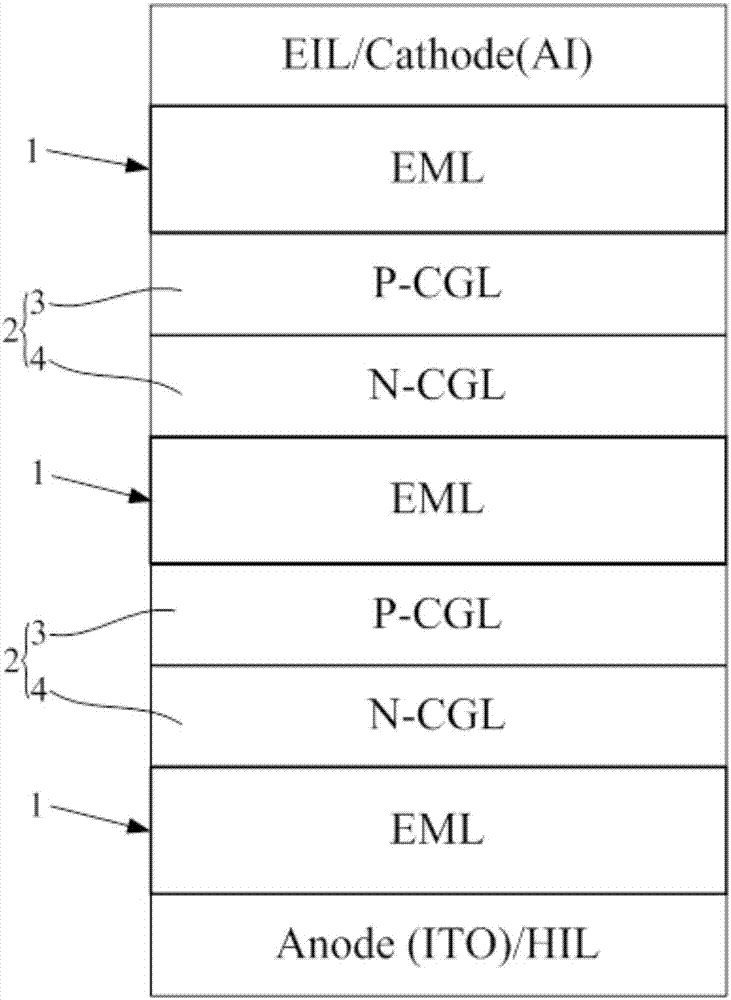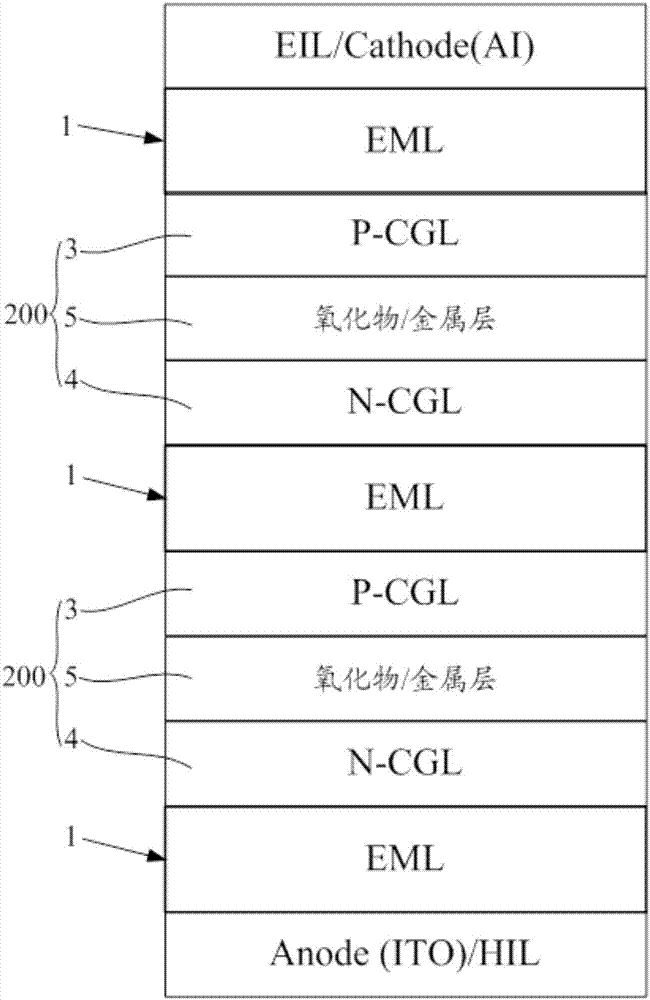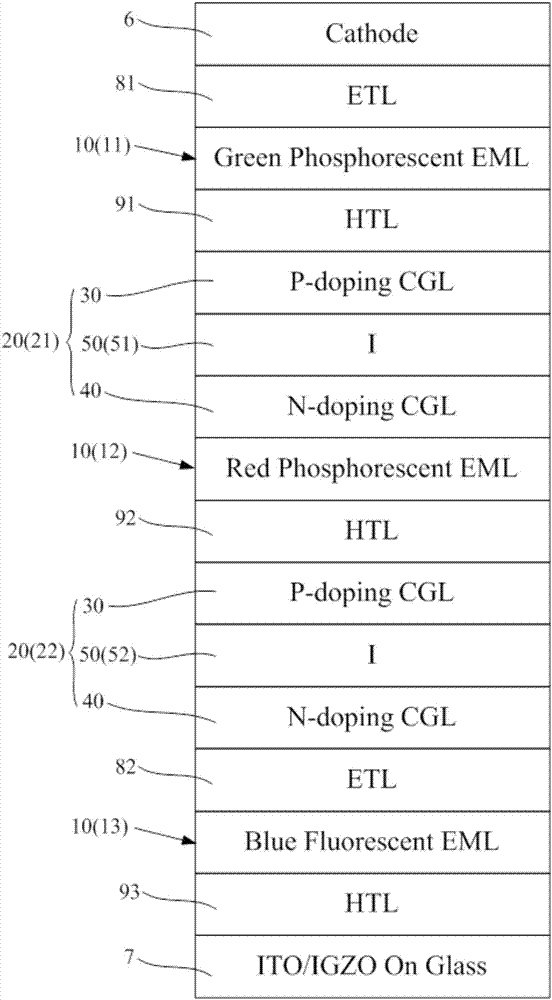Organic electroluminescent display panel and display device
An electroluminescence display and display panel technology, applied in circuits, electrical components, electric solid-state devices, etc., can solve problems such as voltage increase, achieve low power consumption, long-term stable driving voltage, and long service life
- Summary
- Abstract
- Description
- Claims
- Application Information
AI Technical Summary
Problems solved by technology
Method used
Image
Examples
Embodiment 1
[0057] Embodiment one, such as image 3 As shown, the P-I-N type OLED provided by the embodiment of the present invention may include a first light-emitting unit 11, a second light-emitting unit 12 and a third light-emitting unit 13 connected in series in sequence. The first light-emitting unit 11, the second light-emitting unit 12 and the third light-emitting unit The three light-emitting units 13 can form white light through brightness ratio; optionally, the first light-emitting unit 11, the second light-emitting unit 12 and the third light-emitting unit 13 can be green light-emitting units, red light-emitting units and blue light-emitting units respectively Specifically, a first charge generation layer (P-I-N type CGL) 21 is provided between the first light emitting unit 11 and the second light emitting unit 12, and a second charge generation layer is provided between the second light emitting unit 12 and the third light emitting unit 13 layer (P-I-N type CGL) 22 .
Embodiment approach
[0059] Mode 1, in the first charge generation layer 21, the electron mobility of the intermediate layer (I layer) 51 is greater than the electron mobility of the N-doped layer host material; in the second charge generation layer 22, the electron mobility of the intermediate layer (I layer) 52 The hole mobility is greater than that of the host material of the P-doped layer.
[0060] Mode 2, in the first charge generation layer 21, the hole mobility of the intermediate layer (I layer) 51 is greater than the hole mobility of the P-doped layer host material; in the second charge generation layer 22, the intermediate layer (I layer) The electron mobility of 52 is greater than that of the host material of the N-doped layer.
[0061] Mode 3, in the first charge generation layer 21, the electron mobility of the intermediate layer (I layer) 51 is greater than the electron mobility of the N-doped layer host material; in the second charge generation layer 22, the electron mobility of the...
Embodiment 2
[0063] Embodiment two, such as Figure 4 As shown, the P-I-N type CGL OLED panel provided by the embodiment of the present invention may include two light-emitting units 10 connected in series, that is, the light-emitting unit 14 and the light-emitting unit 15. The light-emitting unit 14 and the light-emitting unit 15 can form white light through brightness ratio Optionally, the light-emitting unit 14 and the light-emitting unit 15 can be respectively a yellow light-emitting unit and a blue light-emitting unit; specifically, a charge generation layer (P-I-N type CGL) 23 is provided between the light-emitting unit 14 and the light-emitting unit 15, the In the charge generation layer (P-I-N type CGL) 23, the electron mobility of the intermediate layer (I layer) 53 is greater than the electron mobility of the host material of the N-doped layer 40; and / or, the hole mobility of the intermediate layer (I layer) 53 The rate is greater than the hole mobility of the host material of th...
PUM
| Property | Measurement | Unit |
|---|---|---|
| Electron mobility | aaaaa | aaaaa |
| Mobility | aaaaa | aaaaa |
Abstract
Description
Claims
Application Information
 Login to View More
Login to View More - R&D
- Intellectual Property
- Life Sciences
- Materials
- Tech Scout
- Unparalleled Data Quality
- Higher Quality Content
- 60% Fewer Hallucinations
Browse by: Latest US Patents, China's latest patents, Technical Efficacy Thesaurus, Application Domain, Technology Topic, Popular Technical Reports.
© 2025 PatSnap. All rights reserved.Legal|Privacy policy|Modern Slavery Act Transparency Statement|Sitemap|About US| Contact US: help@patsnap.com



